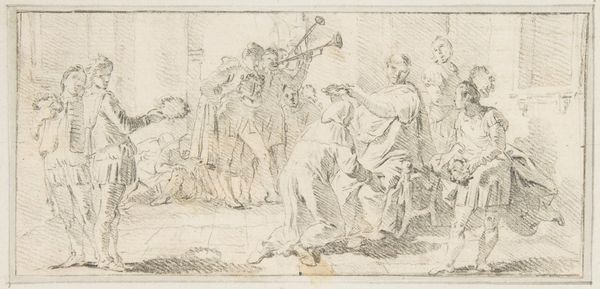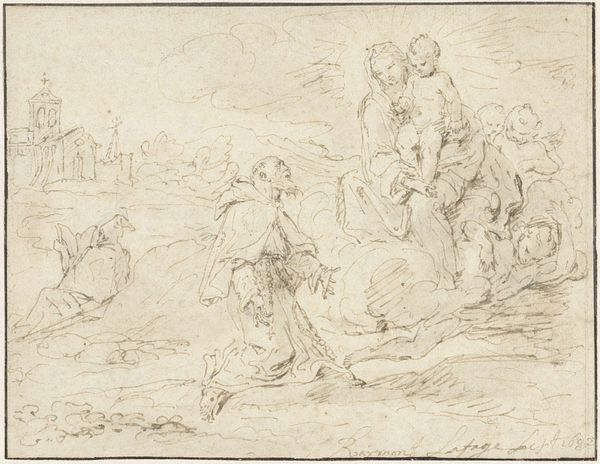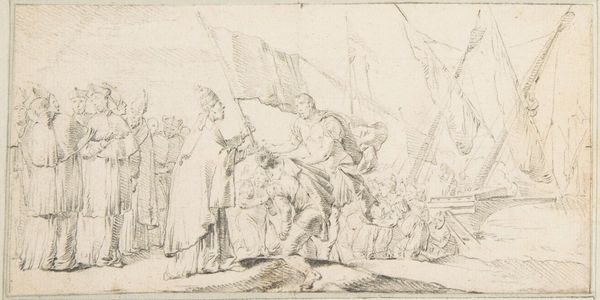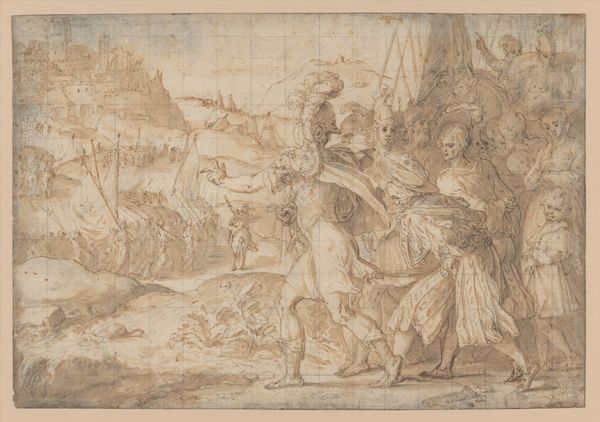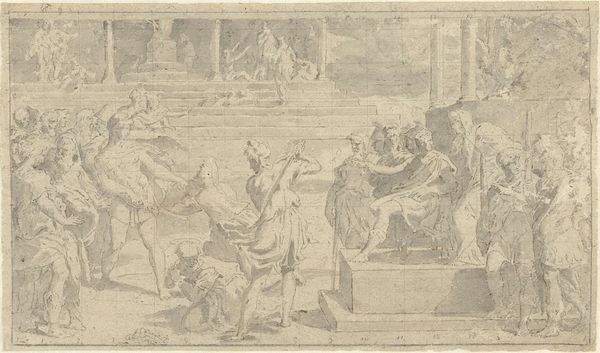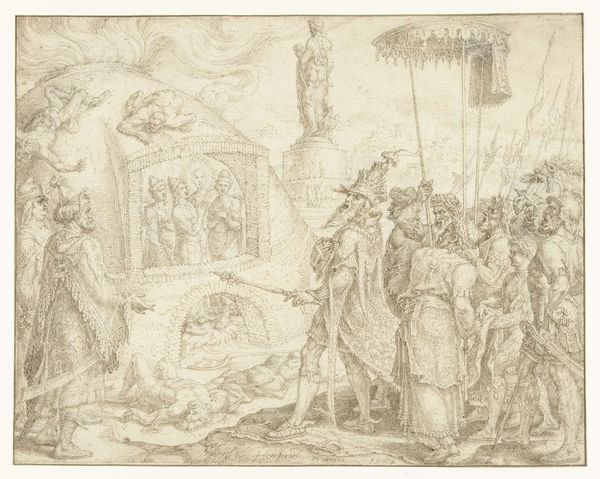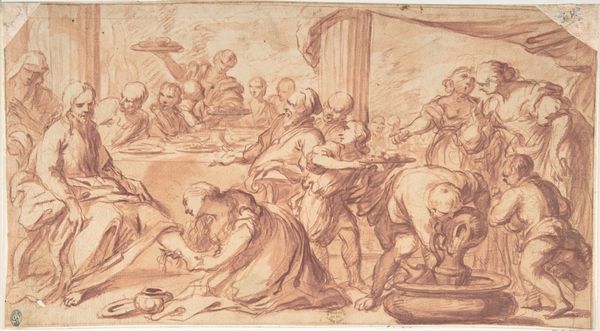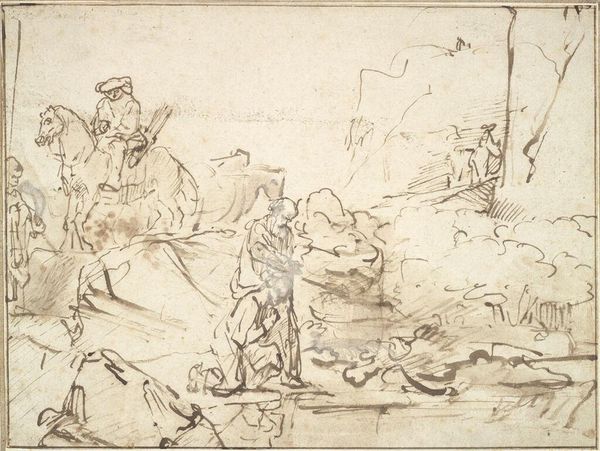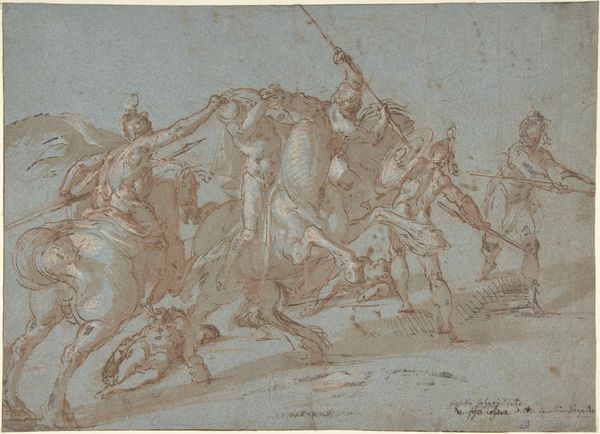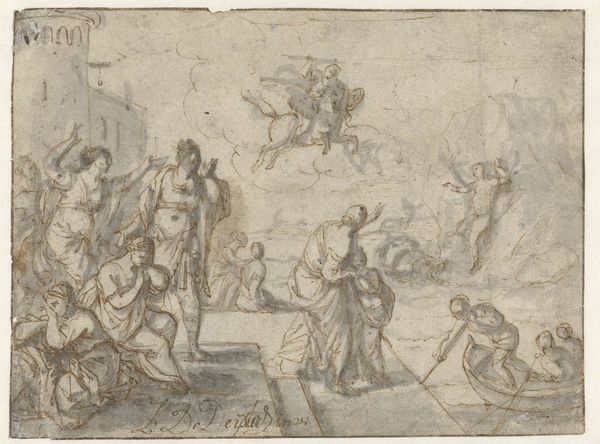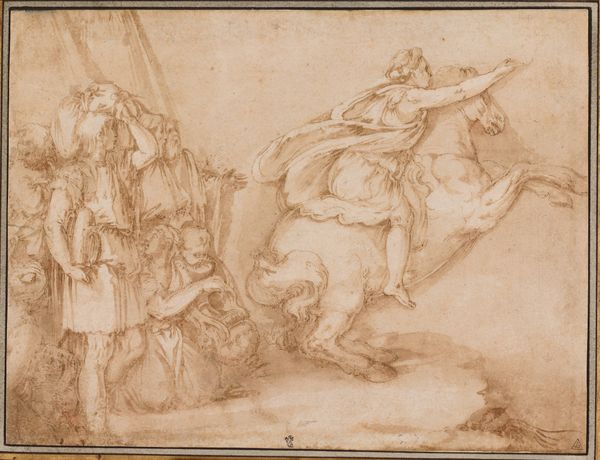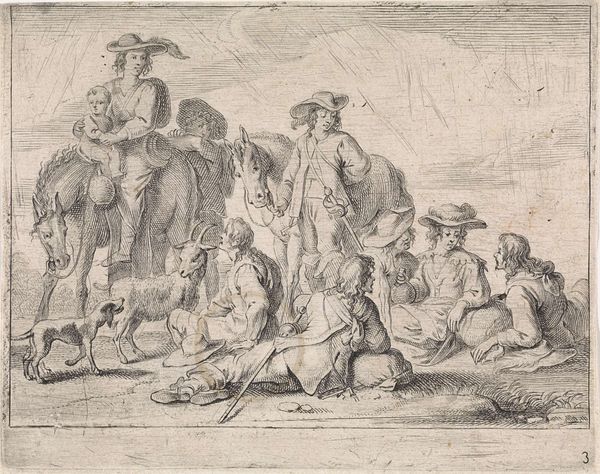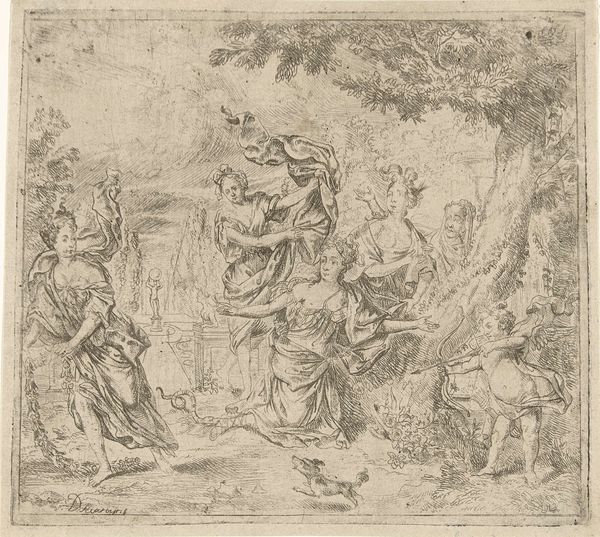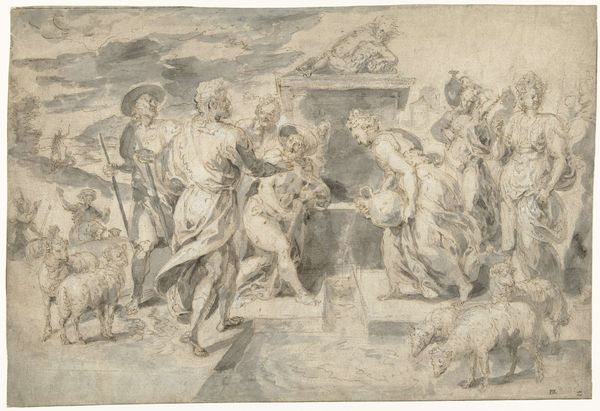
Soldiers Surrendering to an Emperor, with a City in the Background 1696 - 1770
0:00
0:00
drawing, ink, pencil
#
drawing
#
narrative-art
#
baroque
#
figuration
#
ink
#
pencil
#
cityscape
#
history-painting
Copyright: Public Domain: Artvee
Editor: This is "Soldiers Surrendering to an Emperor, with a City in the Background," a drawing by Giovanni Battista Tiepolo, created sometime between 1696 and 1770 using pencil and ink. It feels so dynamic, but also kind of… unresolved? There’s all this implied movement, but the linework is so open. What’s your interpretation of this work? Curator: Well, as a historian, I look at Tiepolo and see a reflection of the shifting power dynamics and the performance of authority in the 18th century. The scene is set with an Emperor figure receiving surrendering soldiers. Consider how images of leadership were constructed and circulated at this time. Who was this image intended for, and what political messages might it have conveyed? Editor: I guess I hadn't considered it as a political image. It's just a quick drawing, right? Was Tiepolo actually trying to make some statement? Curator: The ‘quickness’ of the drawing is key, isn’t it? It shows Tiepolo’s virtuosity but also his role within a larger visual culture that required the swift production and dissemination of imagery. The sketch could be a study for a larger painting or a print. Either way, it places him within the broader visual propaganda machine of the time. Editor: So, even a sketch can be propaganda? That's wild. How much control would artists like Tiepolo have over how their work was used in that way? Curator: Control is a tricky word. Artists, then as now, operated within patronage systems and social expectations. Someone had to be paying him to make this image, right? So you have to think about who benefitted from it. And this affects everything, even this ostensibly 'casual' drawing. Editor: So understanding the political context really unlocks the drawing's meaning. Curator: Exactly. We have to consider not only the aesthetic qualities of the piece, but also how art was produced, consumed, and weaponized during that period. Thinking about art's public role can often change our understanding. Editor: I hadn’t really considered how much even a simple sketch like this could be part of larger political machinations. Curator: And I am delighted you have, now. Thanks for giving me a fresh opportunity to reflect on that.
Comments
No comments
Be the first to comment and join the conversation on the ultimate creative platform.
